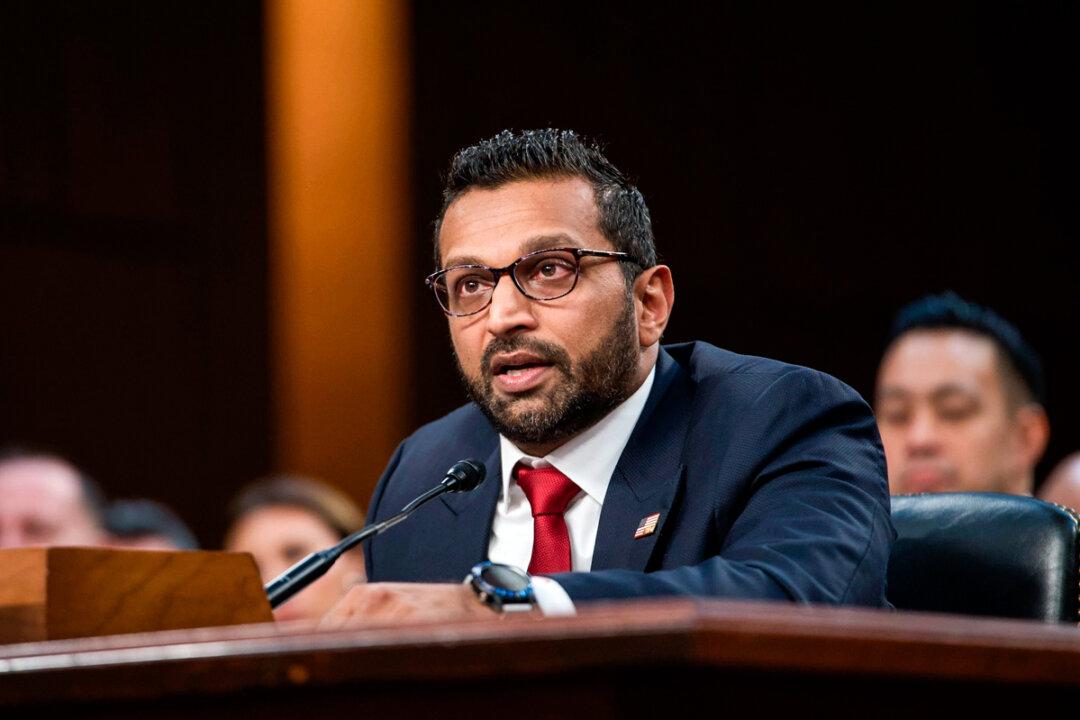Spiking energy prices in Europe are tied to an increased reliance on renewables and lowered investments in fossil fuels, according to energy expert Robert Bryce, who argues that the continent’s green policies provide the United States with a clear example of how not to proceed.
“Respectfully, legislators and policymakers in Washington need a big dose of energy realism. You need an even bigger daily dose of energy humanism,” Bryce told the senators.
The hearing comes shortly after the conclusion of the 2021 United Nations Climate Change Conference, commonly referred to as COP26, at which the United States and other parties agreed to “[accelerate] the phase-out of unabated coal and of inefficient subsidies for fossil fuels,” among other points in the decision text aimed to reduce carbon emissions.
In the referendum, Maine voters made it illegal to build “high-impact electric transmission lines in the Upper Kennebec Region,” undercutting the proposed New England Clean Energy Connection (NECEC) power line linking Canada with the United States.
EIA Predicts Significant Growth of US Oil Production in 2022
Asked by ENR Chairman Joe Manchin (D-W. Va.) whether the United States should restrict energy exports to protect domestic consumers from volatile prices, Bryce said it shouldn’t.“I believe in free markets and free trade, sir,” he told Manchin.
Sen. Angus King (I-Maine) pushed back against Bryce, arguing that U.S. natural gas exports were hurting domestic consumers and “literally subsidizing Chinese manufacturing.”
Steven Nalley, the acting administrator of the U.S. Energy Information Administration (EIA), and Tim Gould, the chief energy economist of the International Energy Agency (IEA), also testified.
Nalley told senators that EIA predicts that U.S. crude oil production “will grow significantly in 2022 but still not quite reach the record level of 2019.” He similarly predicted U.S. natural gas production growth of 2 percent during 2021, coupled with an additional 4 percent growth during 2022.
He testified that EIA predicts U.S. gasoline prices will drop “closer to $3 per gallon at the end of this year and continue to gradually decline throughout 2022.”
While Nalley attributed this hypothetical future decrease to falling oil prices, he also testified that EIA predicts U.S. production will have decreased slightly in 2021 and that “global oil production ... is growing more slowly than consumption,” with the EIA predicting an increase in global oil production of just 2 percent in 2021 before it grows “significantly” through 2022.
Nalley says EIA’s assessments suggest that short-term energy prices and supply-related challenges could pose problems this winter, with heating bills for Americans on pace to rise.
“New England and Southern California, for example, could face regional natural gas delivery challenges,” he added.
Sen. Catherine Cortez Masto (D-N.M.) queried Nalley on the relationship between climate change, extreme weather events, and energy prices, arguing that “the economic costs of climate change are widespread and difficult to predict.”
IEA: Rising Global Energy Prices Have Little to Do With Renewables
Speaking from the IEA’s perspective, Gould testified that the “rapid economic recovery from the downturn caused by the pandemic” was the chief cause of rising energy prices, adding that “droughts in Brazil, lower than average wind generation in Europe, and various planned and unplanned outages to supply” were also contributors.“At the IEA, we do not consider that climate policies or clean energy transitions have played a significant role,” Gould told the committee.
Contrary to what Bryce and some other commentators believe, the IEA has consistently maintained that surging global energy prices have little to do with renewables.
“Our message today is that this acceleration in energy transitions needs to happen quickly, or we see a looming risk of renewed volatility in the coming years,” Gould testified.
Ranking member John Barrasso (R-Wyo.) highlighted remarks from Saule Omarova, President Joe Biden’s pick to serve as comptroller of the currency.
“Raise your hands if you think they ought to go bankrupt,” Barrasso said. He noted that Bryce, the EIA’s Nalley, and the IEA’s Gould didn’t raise their hands.





